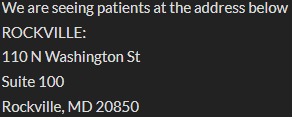Deposing An Expert Witness Like A Doctor or Chiropractor
In many cases, the success of your client’s case will depend on expert testimony. When deposing an expert, whether it be a world-renowned brain surgeon or a licensed plumber, there are rules and considerations that the lawyer must follow to be successful. This article will lay out some of the basic rules of taking the expert deposition that apply to every type of expert.
There are many types of cases where it will be necessary for one or both parties to call an expert witness. The obvious example is the medical malpractice case. The plaintiff must call a witness who is an expert in the field of medicine, in order to establish that the defendant physician departed from good and accepted medical practice(s). Not only will the defendant retain their own expert, but the defendant physician will also testify. In automobile accident cases, the defendant may call a biomechanical engineer or an accident reconstructionist, to try and prove that the accident was plaintiff’s fault and/or that plaintiff could not have sustained the injuries claimed in the accident. The attorney must be prepared to attack the very foundation of the expert’s opinions. This takes a lot of time and preparation.
Know Everything About The Expert. Go beyond the basics. Yes, it is important to know where they went to school, their training/experience and other cases they have testified in. It is just as important to go through the expert’s Curriculum Vitae with a fine-tooth comb. I routinely obtain all articles, text books, publications or journals that the expert lists. I order the abstracts if necessary, as well as power point presentations of any lectures they may have given. I have attended lectures that they have participated in. Make a chart of their opinions along with the specific source so that you have it on hand during the deposition. Have they ever been disciplined by their profession? Each state has a data base that is available to the public concerning professional discipline. Have you obtained all available deposition and/ or trial testimony of the expert? It is also wise to speak with other lawyers who have previously deposed the expert. They can tell you a lot about the witness’s demeanor and personality. Of course, Google searches are mandatory. But don’t be lazy and look at the first 2 or 3 pages. Go deep. In a recent case of mine, I found that the defendant’s expert was thrown off a commercial airline flight for threatening the crew. It was on page 5. I was on notice that he was a “hot head” long before I asked him a single question. Remember that you cannot be too prepared.
Consult With Your Expert. Review your proposed questions with your expert. Be confident that you are not only asking the right questions, but asking them the right way. Make sure that you know the subject cold. This can only be fully accomplished by your expert teaching you what you need to know. Be a student. Ask questions until you know everything you can about the subject matter. Ask your expert to recommend reference materials and what publication(s) does he or she consider authoritative on the issue. Read everything that you can get your hands on concerning the subject. In some instances, like when familiarizing myself with a specific surgical procedure, I have found YouTube videos very helpful.
Establish Grounds For Preclusion. The purpose of an expert at trial is to aid the jury in those circumstances when the expert’s testimony “would help to clarify an issue calling for professional or technical knowledge, possessed by the expert and beyond the ken of the typical juror.” De Long v. County of Erie, 60 N.Y.2d 296, 307 (1983). The proposed expert must have the appropriate education, background, and/or experience in the field upon which he or she will opine. “The expert should be possessed of the requisite skill, training, education, knowledge or experience from which it can be assumed that the information imparted or the opinion rendered is reliable.” Matott v. Ward, 48 N.Y.2d 455 (1979). The expert must be asked questions concerning these basic requirements at the deposition.
If an expert’s opinion is based upon a novel scientific theory it must satisfy the standard of Frye v. United States, 293 F. 1013 (D.C. Cir. 1923). The Frye standard is known as the “General Acceptance Test,” and provides that an expert opinion which is based upon a scientific theory or technique is admissible if the scientific theory or technique is generally accepted as reliable in the appropriate scientific community.
Make sure that the expert can define the relevant scientific community and establish the general acceptance of the theory or technique by showing: (1) The competence of the individual propounding the theory or technique; (2) The purpose of the theory or technique; (3) The procedures for obtaining the results; and (4) The general acceptance of the methodology used by the individual in the defined scientific community. A skilled auto accident lawyer New York, NY has the responsibility to examine all grounds for preclusion whether it be the lack of expertise or exposing flaws in the expert’s facts and/or methods in forming his opinions.
Lock The Expert Into All Opinions. Trial lawyers hate surprises. It is crucial to lock the expert in to his or her opinions. Use blunt, clear and concise questions and have the expert repeat the answers for clarification as necessary. Do not allow the expert any wiggle room in his answer. This is accomplished by posing hypothetical questions, using the specific facts of the case. Make sure to elicit all facts and materials relied on by the expert to formulate those opinions.
Do Not Argue With The Expert. This rule applies to any witness you depose, expert or not. For some reason, lawyers tend to try and match wits with an expert. It may be because the lawyer has spent so much time learning and preparing, that he or she has an inflated opinion of their own mastery of the subject. Don’t lose sight of the fact that no matter how much you prepare, the expert will know more about the subject than you can ever hope to know. Live with it and embrace it. However, that doesn’t mean to be totally deferential. You are there to challenge the expert on the validity of the opinions, not to get into a debate.
We all know that experts can make or break your case. The time to win your case is at the expert’s deposition. This is where you must accumulate the ammunition you will need to put your client in the best possible position to either force a fair settlement or win the case at trial.





